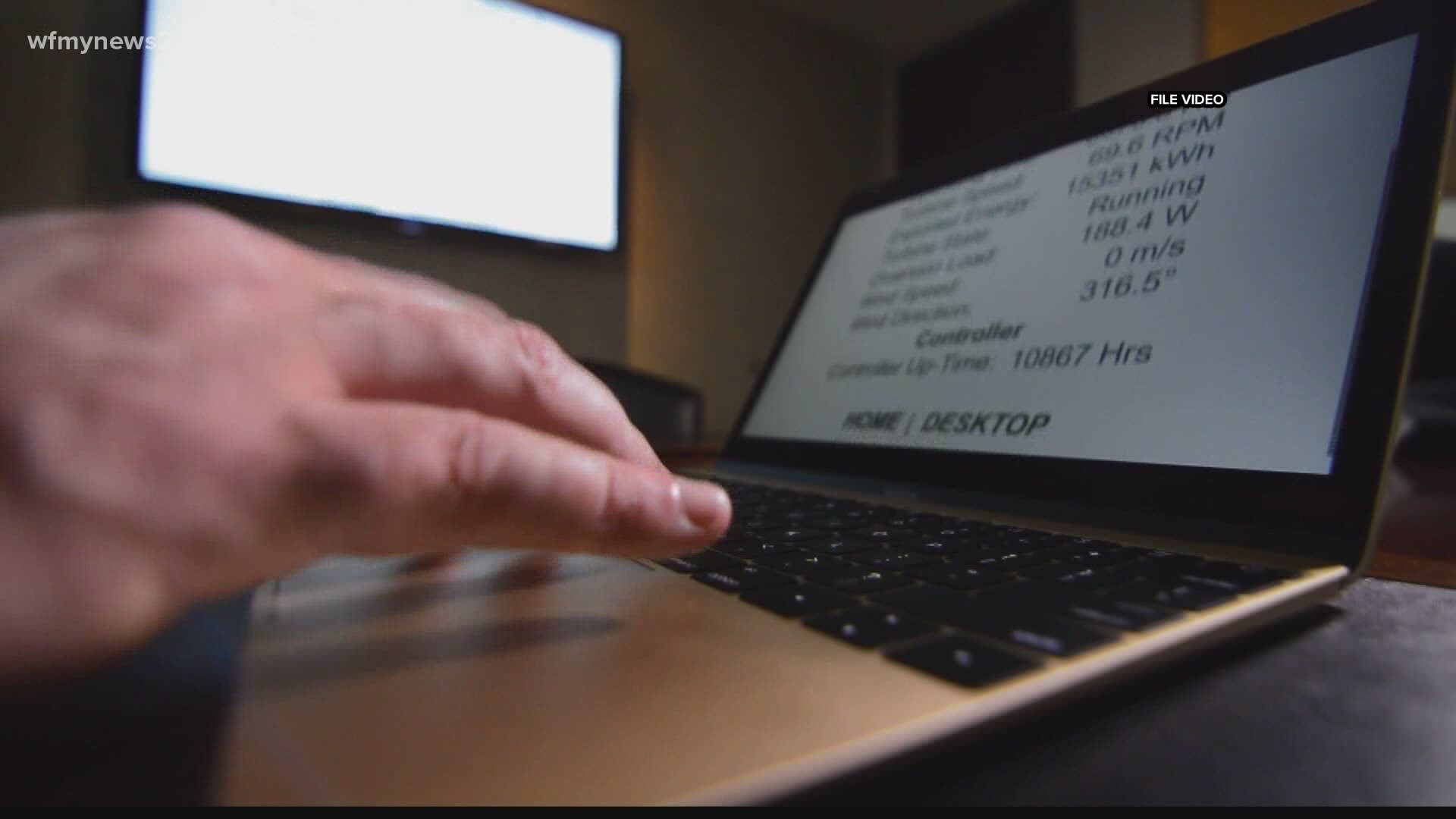GREENSBORO, N.C. — The Better Business Bureau wants college students to be on the alert for COVID-19 scams. Research shows younger people aged 20 to 30 lose money to fraud more often than older consumers.
According to the BBB, scammers are using phishing emails to get college students' personal information. The email claims to be from the school's "financial department.” But, the email is not connected to the financial department.
The email encourages students to click on a portal link to get a message about a COVID-19 economic stimulus check. After clicking on the link, students are required to submit a university login.
The BBB is strongly encouraging students to avoid opening the email or clicking on the “log-in” link. If not, students' could be giving their user name, password, or other personal information to scammers. On top of that, malware could possibly be downloaded onto the student's device.
If you spot a scam, make sure you report it. The Federal Trade Commission (FTC) is the main agency that collects scam reports. Report your scam online with the FTC complaint assistant, or by phone at 1-877-382-4357 (9:00 AM - 8:00 PM, ET). The FTC accepts complaints about most scams, including these popular ones:
- Phone calls
- Emails
- Computer support scams
- Imposter scams
- Fake checks
- Demands for you to send money (check, wire transfers, gift cards)
- Student loan or scholarship scams
- Prize, grants, and sweepstakes offers
The FTC also collects reports of identity theft. Report identity theft online at IdentityTheft.gov or by phone at 1-877-438-4338 (9:00 AM - 8:00 PM, ET).
The BBB offers the following tips for avoiding other financial scams:
- Fake Credit Cards - It’s not a secret that deals which appear to be a quick and easy way to spend money are offered to college students to get them to apply for their first credit card. On top of the fact that this could potentially stir up a credit problem, some of the deals could be a fake gimmick to get access to student’s personal information. Do your research on those credit card flyers, emails, promotions and mailers before applying. Read the BBB Tip on credit card scams.
- Too Good to be True Apartments - It’s hard to not jump on a convenient apartment so close to campus, especially if it advertises affordable rent. It’s tempting to hand over credit card information online to lock in a great spot, but it’s always worth seeing the apartment in person prior to a money transfer. This also applies to Craigslist listings of other students looking for roommates.
- Safe Credit Reports - After the age of 18, it’s a good idea to start becoming more aware of your credit score and start adapting some healthy money habits. It’s also a helpful signifier of any unusual activity and possible ID fraud. While there are multiple traps online trying to snag your social security number with a fake credit score scam, safely check your credit score at annualcreditreport.com.
- Scholarship and Grant Scams - Phone calls from companies guaranteeing they can help reduce loan payments or set you up with a hefty grant are worth researching. Even searching the company online could bring up scam alerts from other victims. Contact the school’s financial aid office for advice on the company’s legitimacy or how they can help otherwise. Scholarship scams can affect college students even after graduation; read the BBB's tips on scholarship scams.
- Employment Scams - In 2018, employment scams were the #1 culprit for scams attacking 18-25 year olds. Job offerings can be sent directly to school emails, promising flexible hours and a beyond expected pay. There would be no need to send a social security number electronically without knowing exactly who you are sending it to. For more types of employment scams, visit BBB's Tips: Employment Scams.
- Awareness of Current Scams - As tech savvy as current college students can be, a surprising number of scams reported to BBB’s ScamTracker are from students who learned their lesson too late. Use BBB’s ScamTracker to learn of the latest scam trends and read local reports of specific incidents.

